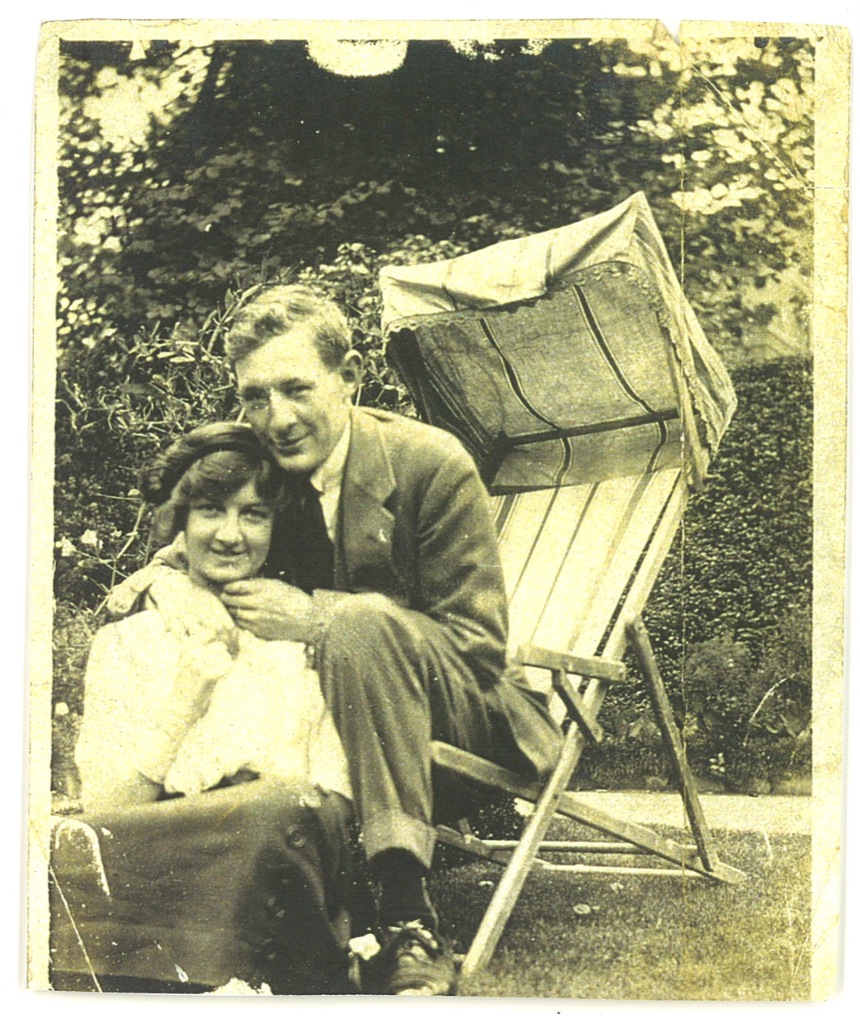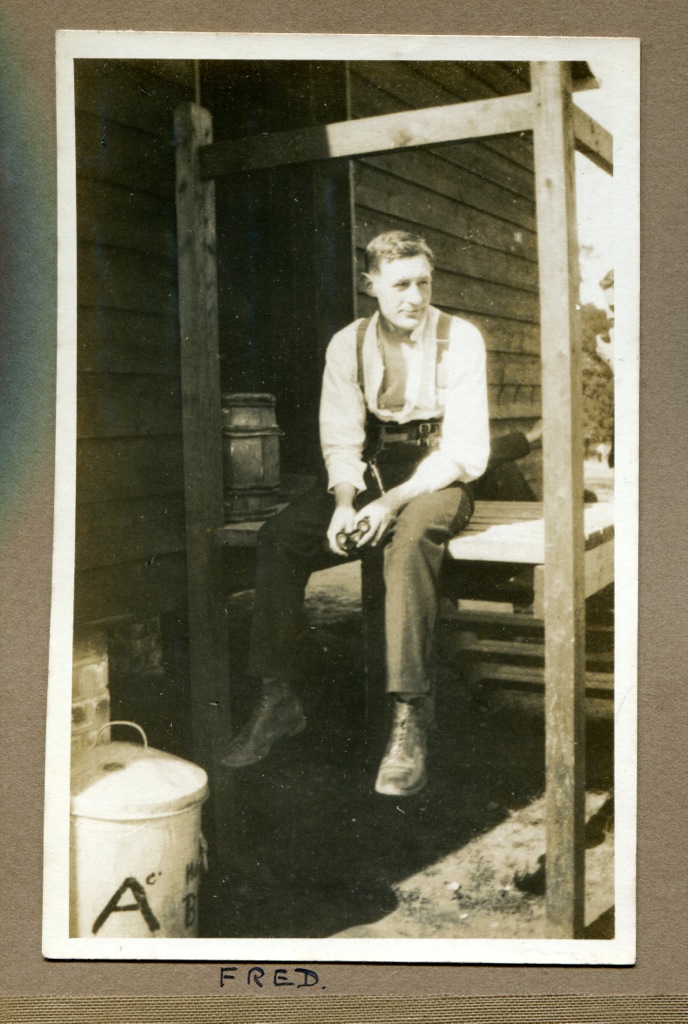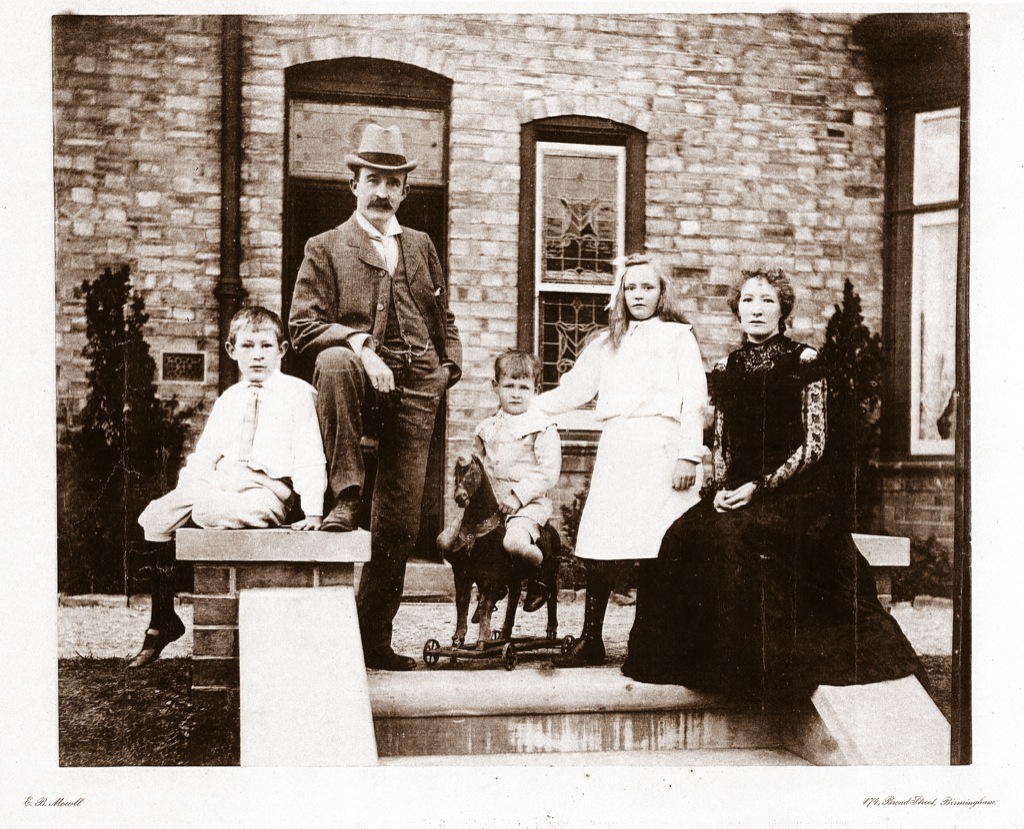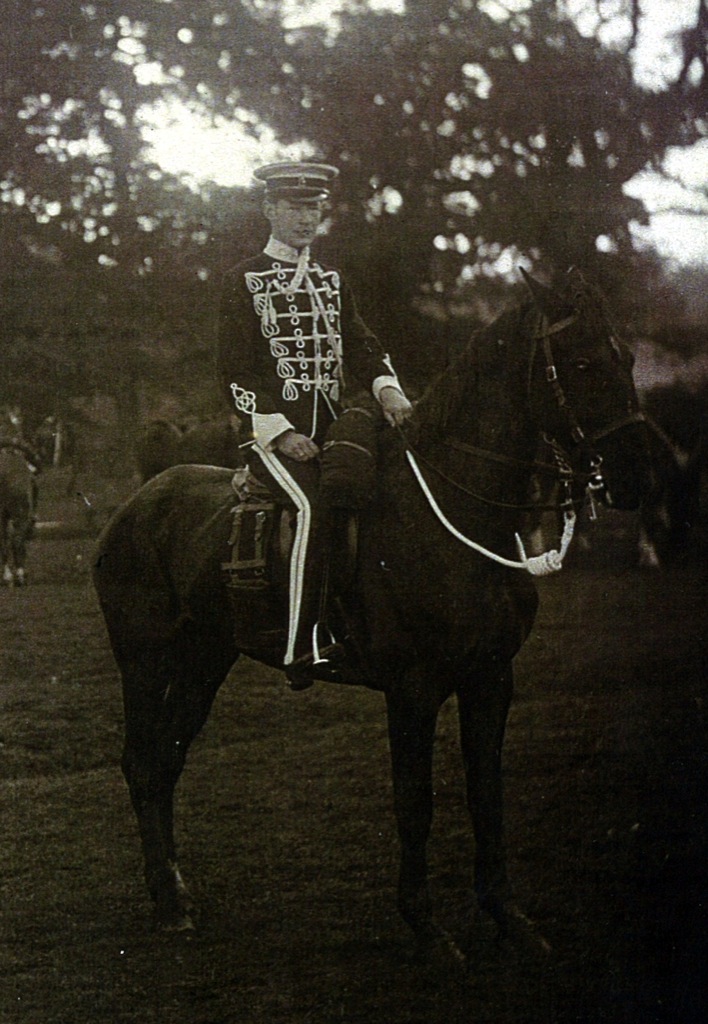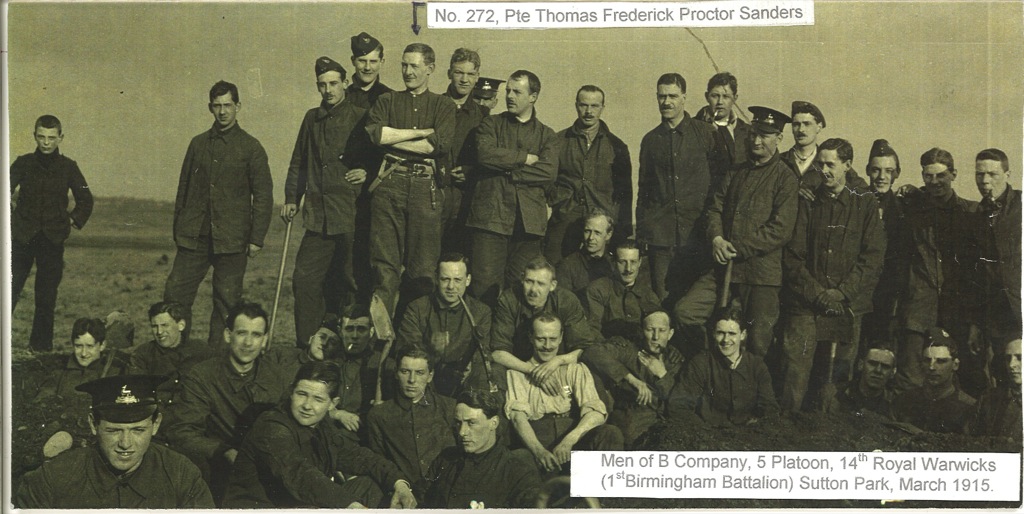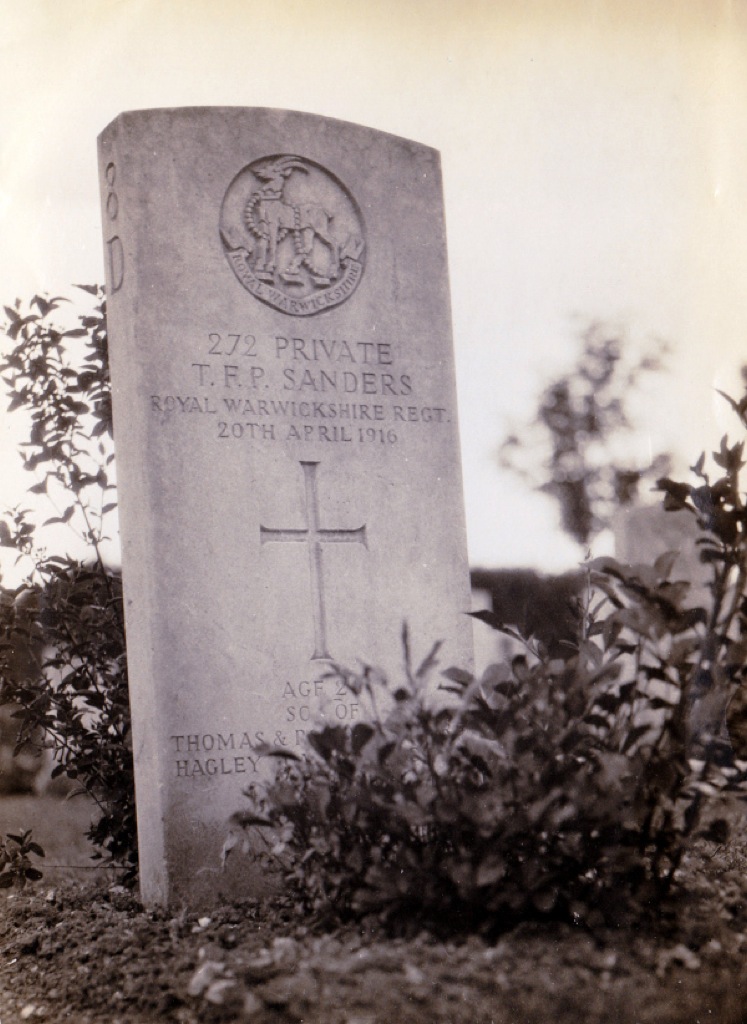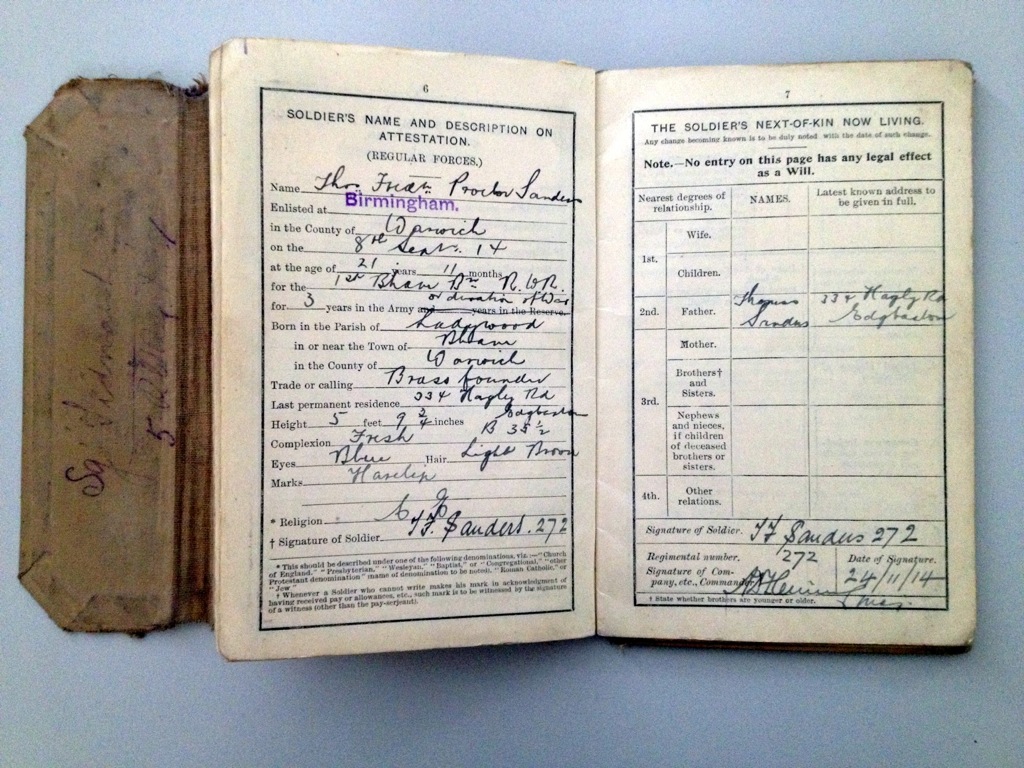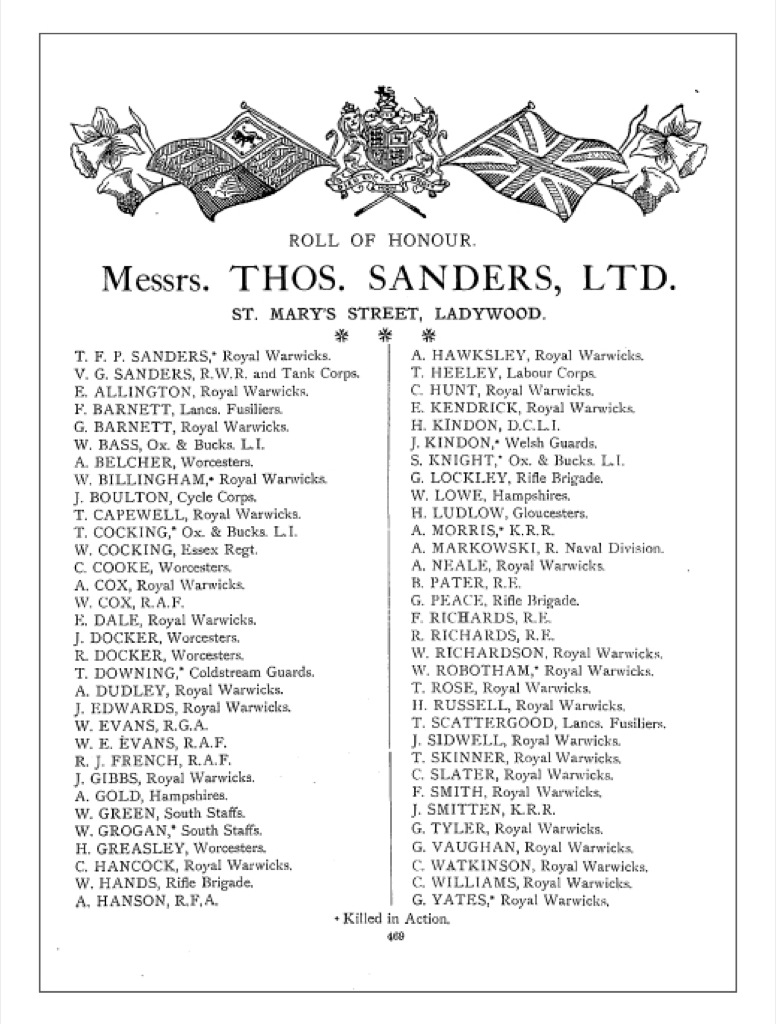Thomas Frederick Proctor Sanders, born on 20th October 1892 and known as ‘Fred’, was admitted to King Edward’s School in September 1905. He lived with his parents, Rosina and Thomas, a brassfounder, and his younger brother and sister at 334, Hagley Road, Edgbaston. Fred’s younger brother, Francis, was also an Old Edwardian, but did not serve in the war, possibly because he was needed in their father’s firm which was manufacturing important materials for the war.
At School, Fred did not distinguish himself academically, but he had some interesting extra-curricular skills. In the School gymnastics display of March 1907, Fred and his contemporary EB Ash put on an “interesting display” of Ju-Jitsu. The Chronicle comments that: “to the vulgar eye, it would seem that there must be both easier and quicker ways of disabling an opponent than by these elaborate contortions, but then Ju-Jitsu is proverbially difficult of comprehension.” After School, Fred worked as a clerk for his father’s brassfounding company.
Fred enlisted as a Private Soldier in the 1st Birmingham Pals Battalion (14th Royal Warwickshire Regiment), in 1914. His attestation papers reveal that, at the time of his enlistment, Fred was 5 feet 9¾ inches tall, of “fresh complexion” with blue eyes, light brown hair and a harelip. During his time in France, Fred desperately attempted to obtain a commission via correspondence with his father, with a reference from Captain Kirkby, Captain of the KES Officer Training Corps.
In 1916, Fred died as a result of an action closely involving other Old Edwardians, Captain William Ehrhardt and Second Lieutenant Emile Jacot, who with Private Sanders, were in the same B Company of the 1st Birmingham Pals, (14th Royal Warwickshire Regiment). On the night of the 17th April 1916, they were together in a party of men from B Company which was out wiring. In the light of a German flare, Private Sanders was hit by a sniper. The bullet entered his thigh and passed out through his stomach. Captain Ehrhardt, on seeing the unfortunate plight of Sanders, went to his assistance with a view to bringing him in. Probably the same German sniper fired again, this time hitting Captain Ehrhardt. The bullet hit him in roughly the same area, but split in two. One piece lodged near his spine, the other piece, together with bone fragments, passing into his stomach. Very soon, Lieutenant Jacot and another Sergeant arrived and displayed great courage and energy in bringing the wounded men in. Both men were taken to the 14th Field Ambulance in Habarcq. Captain Ehrhardt underwent surgery immediately to remove the fragments from his stomach. At this time in the war, it was estimated that only one man in a hundred survived this type of wound. For a few days, Ehrhardt hovered between life and death, eventually pulling through and being moved to a hospital in Brighton. Not so for Private Sanders, who died on 20th April as a result of infection. On 18th April, Jacot wrote to the School, informing Mr Heath of the incident. In this first letter, Jacot reported that, due to the fragmentation of the bullet, Ehrhardt’s wound was much more serious than Sanders’, but in the following letter, he had to reveal that Sanders had died, while Ehrhardt continued to struggle on, the medical staff marvelling at his vitality. “I need hardly say that they both took it as one would have expected of them. Ehrhardt’s only concern was that Sanders should be moved first, while Sanders kept entreating us not to worry about him until we had got the Captain in.” As soon as the Captain was able, he wrote to his parents, giving them details of his condition, and even a diagram of his wound. Lieutenant Jacot was wounded in the lungs later in the war, and both he and Captain Ehrhardt died of their wounds in peacetime.
Fred is buried in Habarcq Communal Extension Cemetery, France, and he left his estate of £1,260 to his father. The inscription on his headstone reads: “Age 23. Son Of Thomas And Rosina Sanders, Hagley Road, Birmingham.”
A collection of Fred’s letters from France survives with his descendants; transcriptions of the letters are held in the KES Archive.

